|

HOME |
ABOUT | INDEX |
NEWS |
FACEBOOK |
CONTACT
LATINX
Latine
| Hispanic |
Central America | Mexico


African American|Black
Arab|Muslim|Middle East
Asian|Pacific
Indian|Hindu|Sikh
Jewish|Israeli
Native|Two Spirit

Coming Out as
LGBTQ and Hispanic
For many Hispanic and Latino/Latina/Latinx individuals, coming out
involves some specific cultural factors worth
considering. These factors include having to deal with a
culture highly influenced by religion and particularly
Catholicism, strong family foundations, traditional
gender norms and machismo, as well as racism and the
lack of visibility of Hispanic and Latinos in the
leadership of LGBTQ community. Many Hispanic and Latino
LGBTQ people have endured intensive prejudice and
discrimination from the various communities to which
they belong. Yet, thanks to courageous Hispanic and
Latino LGBTQ activists, writers and scholars, their
families and their allies, this is a time of growing
support, acceptance and visibility.
Religion - According to the US 2000 census, 70% of Hispanic and
Latino families identify as Catholic. The second largest
group is most likely Protestant, followed by people who
do not consider themselves members of any church, Jews,
and finally a very small number of converts to Islam. In
all of these communities, the Bible is a frequently
quoted source by those who condemn homosexuality. Those
who use the Bible this way support their view with a
literal reading of the texts and often take quotations
out of context, ignoring their historical and cultural
origins, and using them as ammunition against people
they hate or fear.
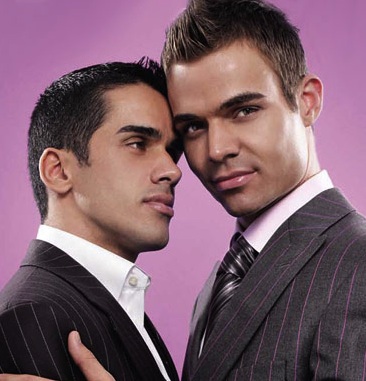
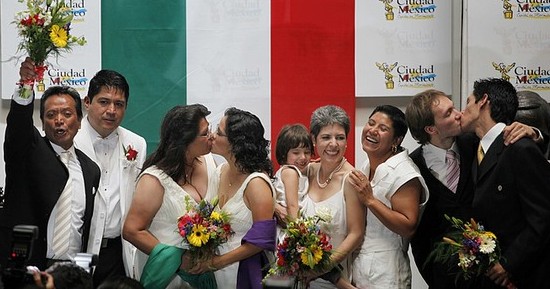

Reel: Mexico City Pride
Puerto Rico Allows LGBTQ People To Use 'X' Gender Marker
On Birth Certificates
Queer and Trans Latine Celebrities We
Love
Love Story: Dannelia and Marlen’s Journey
to Marriage
NBC Today Show: Gay Puerto Rican
Hairstylist Talks to Jenna Bush Hager
We Love These LGBTQ Latine Celebs
Cuba Legalizes Same-Sex Marriage in Historic Referendum
SNL: Ariana DeBose and Kate McKinnon
Trailblazing Queer Icons from Puerto Rico
First Latina SAG Film Actress Winner: Ariana DeBose
LGBTQ Filipina Boxer Nesthy Petecio Wins Olympic Medal
Deja Alvarez: Could Become the First Out
Trans Latina Member of Pennsylvania House
Doritos Day of the Dead Commercial With
Queer Couple Goes Viral
Ecuadorian Hunk Roberto Manrique Comes Out as Gay
Patriarchy
and the Family -
In many Hispanic and Latinx contexts, the family remains
a crucial institution that defines both gender and
sexual relations between men and women. Therefore, any
behavior that deviates from the expected heterosexuality
must be kept secret.
Responsibility to one’s family is a very important
value. Family name and image are very important values
and every individual family member is seen as a
reflection on their larger family.
There is a strong cultural norm that families must solve
problems on their own and not mention them outside the
inner family circle. If problems remain unsolved or are
considered unsolvable, then the family often no longer
discusses the matter, and buries it in silence.

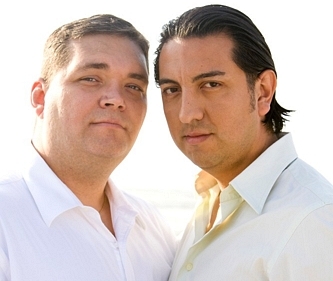 
America Ferrera: My Identity is My
Superpower
Zander Keig: Latinx Trans Social Worker
Puerto Rico Allows LGBTQ People To Use 'X' Gender Marker
On Birth Certificates
Costa Rica: First Central American
Country to Legalize Same Sex Marriage
America Chavez, Lesbian Superhero, Debuts in Marvel's
Doctor Strange
Doritos and Dia de Muertos: Nunca Es Tarde Para Ser
Quien Eres
Salvadoran Drag Queen Emerges as Colorful Presidential
Critic
Chile Legalizes Same-Sex Marriage in Historic Vote
Cuba Introduces its First Big Five-Star Gay Hotel
LGBTQ Latinx: We Carry Pride Within Ourselves
Ella Roba Un Beso A Su Mejor Amiga
Many Hispanic/Latinx families have parents who believe
they would do anything to insure their children’s
welfare. However, like parents of all ethnic groups,
many are ill prepared to deal with having a LGBTQ child
because of a lack of education with regard to human
sexuality and sexual identity.
Gender stereotypes and the position of women in
patriarchal societies influence the treatment and
stereotypes of gay men in these societies. This can be
seen, for example in the contemptuous term term
“Maricón” used to slur gay men in Mexico and throughout
the Spanish speaking world by comparing them to women.
Patriarchal cultures with deep roots in the institution
of heterosexuality can also be experienced as requiring
that women commit themselves to men (of their culture)
while subordinating their own sexual desires.
Machismo - Most, if
not all, cultures have double standards by which male
and female sexual and gender behavior is judged. In
Hispanic and Latino communities, these values and
beliefs are often referred to as machismo and are highly
valued. Machismo doesn’t have to lead to homophobia but
it can if it leads to the“ the repudiation of all ‘
feminine’ virtues” in men and any suspicion of
masculinity in women.
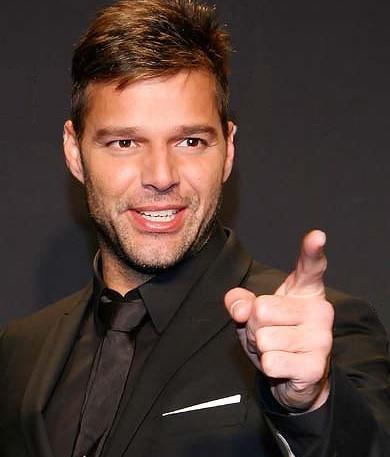
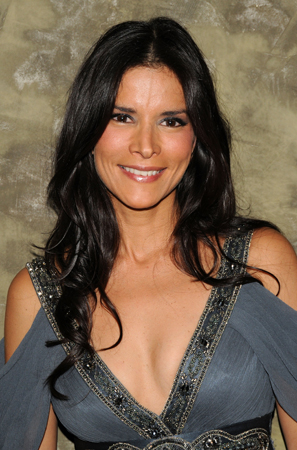



Queer and Trans Latine Celebrities We
Love
NBC Today Show: Gay Puerto Rican
Hairstylist Talks to Jenna Bush Hager
Extraordinary True Story of Cassandro: Mexico’s
Trailblazing Gay Luchador
History-Making LGBTQ Latinx Artists Honored on Postage
Stamps
Mexico Issues its First Non-Binary Passport
Emilia Schneider Becomes First Trans Woman Elected
Deputy in the History of Chile
Robert Garcia becomes First Out LGBTQ Immigrant Elected
to Congress
Miss Argentina and Miss Puerto Rico Reveal That They're
Married
NBC: Same-Sex Marriage is Now Legal in All of Mexico's
States
José López Duvont: First Puerto Rican to Win Mr. Gay
World
Trailblazing Queer Icons from Puerto Rico
Media -
The media (particularly TV and movies) and popular jokes
are powerful means through which Hispanic and Latinx
individuals learn about LGBTQ people. Spanish television
in the US often portrays gay men stereotypically, as
extremely effeminate, ridiculous, humorous characters.
LGBTQ people and their contributions to society are
rarely if ever depicted, though during the last decade,
some Spanish soap operas have begun to include a few gay
characters portrayed with a positive image. The sexual
orientation of successful and famous gay persons is
avoided, depriving LGBTQ youths of important role
models. Lesbians are rarely portrayed in the media and,
when they are, they are also shown stereotypically as
very masculine women.
Tradition
-
Tradition is highly valued in Hispanic and Latinx
cultures. The idea of joining a support group strike
some member of Hispanic and Latino communities as
untraditional and contrary to the values of privacy and
family pride.
Economic Circumstances -
Hispanic/Latinx same-sex couple families in Florida are
disadvantaged compared to white non-Hispanic/Latino
same-sex couple families in terms of income,
homeownership, and disability.
Reel: Mexico City Pride
Cuba Votes to Legalize Same-Sex Marriage
LGBTQ Pride Parades in Latin America
Que Es Ser Gay En Mexico?
Latinos in Love
LGBTQ Latinx: We Carry Pride Within Ourselves
Video Report: Mexico's Third Gender
Religion and Coming Out Issues for Latinas and Latinos
Short Film: La Chica De La Barra
Coming Out to My Latinx Parents
Ella Roba Un Beso A Su Mejor Amiga

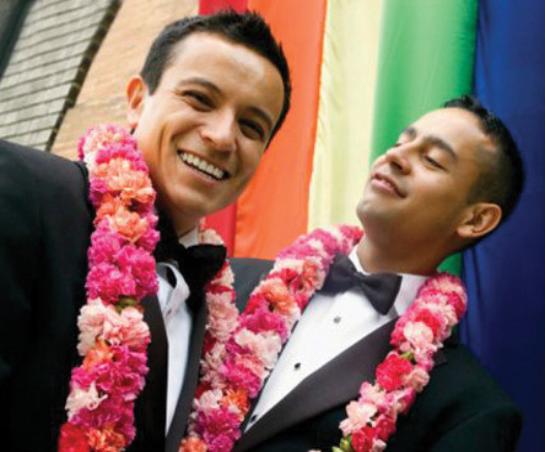
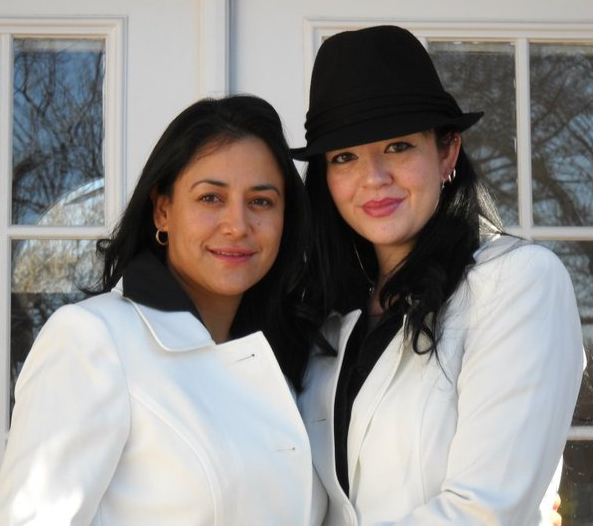
Female same-sex households in Florida in which both
partners are Hispanic/Latina earn over $23,000 less in
median annual household income than white non-
Hispanic/Latina female same-sex households and over
$27,000 less than white non-Hispanic/Latino male
same-sex households.
Male same-sex households in Florida in which both
partners are Hispanic/Latinx earn $13,140 less in median
annual household income than white non-Hispanic/Latina
female same-sex households and $17,500 less than white
non-Hispanic/Latino male same sex couples.
Some Hispanic and Latinx LGBTQ individuals, parents and
allies are highly motivated to form or join support or
civil groups, but they are limited by their financial
circumstances and/or overwhelming work schedules.
[Source: Hispanic & Latino Same Sex Couples in Florida:
Report Based on 2000 Census by Jason Cianciotto & Luis
Lopez. Adapted from De Colores: Lesbian and Gay Latinos:
Stories of Strength, Family and Love Discussion Guide by
Nila Marrone and Peter Barbosa]
Cuba Legalizes Same-Sex Marriage in Historic Referendum
Orgullo LGBTQ: Querido Yo, Todo Mejoro
Doritos and Dia de Muertos: Nunca Es Tarde Para Ser
Quien Eres
LGBTQ Latinx Stories
Puerto Rico Allows LGBTQ People
To Use 'X' Gender Marker On
Birth Certificates
Juliantina: Juliana and Valentina
Love Story: Dannelia and Marlen’s Journey
to Marriage
Frida Kahlo: Famous Mexican Artist
Same Sex Marriage Now Legal in Costa Rica
Saray y Risos: I Don't Forget You Yet
LGBTQ Pride Parades in Latin America
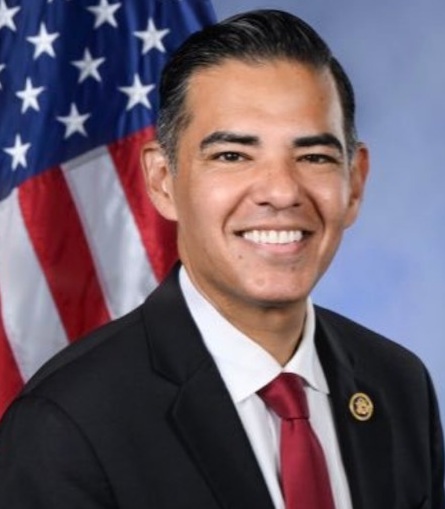




LGBTQ Latinx Resources
HRC - Language and Coming Out Issues for
Latinx People
HONOR Fund – Latinx LGBTQ Advocacy,
Leadership and Education
HONOR
PAC – Empowering Latinx LGBTQ
Communities
Immigration Equality
GLAAD - Spanish Language Media
CLAM –
Centro Latino-Americano em Sexualidade e
direitos humanos
GSA - Gay-Straight Alliance Network,
Resources in Spanish
Somos Familia - Latinx Families with
LGBTQ Children
Voces de Orgullo - Community Support for
LGBTQ Families
Instituto de Educación Popular del Sur
de California
NCLR -
National Council of La Raza
LULAC -
League of United Latin American Citizens


Stephanie
Beatriz
Stephanie Beatriz (born 1981) is a
bisexual Argentine-born American
actress. She is known for playing
Detective Rosa Diaz in the comedy series
Brooklyn Nine-Nine (2013–2021).
She also played Quiet in the Peacock
action comedy series Twisted Metal
(2023–present), Carla in the musical
film In the Heights (2021), and voicing
Mirabel Madrigal in the Disney film
Encanto (2021) and Vaggie in the adult
animated musical series Hazbin Hotel
(2024–present). Some fans will recognize
her from her recurring role as Gloria's
sister Sonia in the ABC comedy series
Modern Family.
Beatriz was born in Argentina to a
Colombian father and a Bolivian mother.
She arrived in the United States at the
age of two with her parents and a
younger sister. Beatriz grew up in
Webster, Texas, outside Houston.
She first realized that she was bisexual
around age 12 or 13.
Reel: Mexico City Pride
Queer and Trans Latine
Celebrities We Love
Puerto Rico Allows LGBTQ People To Use
'X' Gender Marker On Birth Certificates
NBC Today Show: Gay
Puerto Rican Hairstylist Talks to Jenna
Bush Hager
Extraordinary True Story of Cassandro: Mexico’s
Trailblazing Gay Luchador
History-Making LGBTQ Latinx Artists Honored on Postage
Stamps
Mexico Issues its First Non-Binary Passport
Emilia Schneider Becomes First Trans Woman Elected
Deputy in the History of Chile
Robert Garcia becomes First Out LGBTQ Immigrant Elected
to Congress
Miss Argentina and Miss Puerto Rico Reveal That They're
Married
NBC: Same-Sex Marriage is Now Legal in All of Mexico's
States
José López Duvont: First Puerto Rican to Win Mr. Gay
World
Robert Garcia Becomes First Out Gay
Immigrant in Congress
Estas son maravillosas buenas nuevas!
Garcia, an immigrant from Peru and the
mayor of Long Beach, California, has
been elected to the US House from
California's 42nd Congressional
District. A Democrat, he bested
Republican John Briscoe, a businessman.
Garcia, a native of Peru, immigrated to
the United States with his family at age
5. He has been mayor of Long Beach since
2014. He was the city’s youngest mayor,
the first one to be openly gay, and the
first immigrant to hold the office. He
was one of several out political leaders
featured in the keynote address at the
2020 Democratic National Convention.

Robert Garcia Becomes First Out LGBTQ Immigrant Elected
to Congress
Robert Garcia Will Be First Out Gay
Immigrant in Congress
Gay Congressman Robert Garcia: Swearing
His Oath
California
Update: Gay
Congressman Might Be Coming to Town
Victory Fund President and CEO Annise
Parker issued the following statement:
“Robert has a proven track record of
delivering real results for his
community, from safeguarding abortion
rights to championing education and
climate policy. Voters were excited and
motivated by his vision for the future.
With anti-LGBTQ and anti-choice
legislation currently moving through
Congress, the stakes of this election
could not have been higher — and
California voters delivered. We are
confident Robert’s deep policy
experience and ability to build strong,
diverse coalitions will make him an
exceptional legislator. His win tonight
will inspire countless other LGBTQ and
first-generation Americans to pursue
careers in public service.”
[Source: Trudy Ring, Advocate, Nov 2022]
Doritos Mexico: Heartwarming Valentine’s Day Ad
Celebrating LGBTQ Love and Tragic Truth About LGBTQ
Relationships
Gay Congressman Robert Garcia: Swearing His Oath
LGBTQ Latinx Celebrities Celebrating Hispanic Heritage
Month
Gay Playwright Matthew López: First
Latino to Win Tony Award for Best Play
LGBTQ Filipina Boxer Nesthy Petecio Wins Olympic Medal
Deja Alvarez: Could Become the First Out
Trans Latina Member of Pennsylvania House
Doritos Day of the Dead Commercial With
Queer Couple Goes Viral
Ecuadorian Hunk Roberto Manrique Comes Out as Gay
Ella Roba Un Beso A Su
Mejor Amiga
Miss Argentina and Miss Puerto Rico are
Married to Each Other
A former Miss Argentina and former Miss
Puerto Rico shocked and delighted fans
by announcing their surprise marriage.
Mariana Varela and Fabiola Valentín met
at the 2020 Miss Grand International
competition in Thailand, where they
represented Argentina and Puerto Rico,
respectively. After making it to the
pageant top 10, the two beauty queens
appeared to remain close friends on
social media. What fans didn't know is
they were secretly dating the whole
time.



Miss Argentina and Miss Puerto Rico
Reveal That They're Married
Former Miss Argentina and ex-Miss Puerto
Rico Announce Their Marriage
Two Miss Universe Contestants Marry In
Secret
Miss Argentina and Miss Puerto Rico
Marry After Dating 2 Years
Miss Argentina And Miss Puerto Rico
Reveal They Quietly Tied The Knot
The pair posted matching Instagram Reels
showing moments from their relationship,
including romantic walks on the beach,
candid cuddles, champagne toasts and a
proposal with gold and silver balloons
spelling out, "Marry me?"
The main image of the post shows the
pair outside of the city courthouse in
San Juan, Puerto Rico, where they
married on October 28. "After
deciding to keep our relationship
private, we opened the doors on a
special day," the caption reads in
Spanish. Fans, celebrities and
fellow pageant figures congratulated
Varela and Valentín on their
picture-perfect love.

"Congratulations," wrote Ghanaian singer
and beauty queen Abena Akuaba, who won
Miss Grand International 2020. "MGI
brought together a beautiful union."
"Thanks for all the love!" Varela wrote
in reply to the well-wishes. "We are
very happy and blessed."
[Source: AJ Willingham, Advocate, Nov
2022]
Trailblazing Queer Icons
from Puerto Rico
Video: Latinos Talk About Coming Out
LGBTQ Latinx Heroes
We Love These LGBTQ Latine Celebs
HRC: Resources for the LGBTQ Latinx Community
Video Talk: Queer Mexican Couple
LGBTQ Latinx Celebrities Celebrating Hispanic Heritage
Month
Equaldex: LGBTQ Rights in Mexico
Que Es Ser Gay En Mexico?
Queer and Trans Latine Celebrities We
Love
Mexican Soccer Team Asks
Fans to Halt Homophobic Chants at Games
Romeo and Julio: History of Love
Glitterbomb: New LGBTQ
Latinx TV Talk Show
CNN: Being LGBTQ in Latin America
Our Families: LGBTQ Latinx
Stories



The LGBTQ Experience in the Latinx
Community
Queer and Brown
The intersectionality of identity is a
complex and rich tapestry that weaves
together various aspects of an
individual's life. Within the Latinx (or
Latine)
community, the experience of being LGBTQ
adds another layer to this intricate
mosaic.
Cultural Richness and Diversity - Latinx
culture is known for its vibrant
celebrations, close-knit families, and a
deep sense of identity rooted in history
and tradition. However, the diversity
within the Latinx community is often
overlooked. Understanding the LGBTQ
experience within this community
requires acknowledging and celebrating
the myriad of identities, ethnicities,
and backgrounds that make up the Latinx
diaspora.
Challenges and Stigma - While progress
has been made in recent years regarding
LGBTQ rights, challenges persist within
the Latinx community. Traditional
values, religious influences, and
societal expectations can sometimes
create an environment where LGBTQ
individuals may feel hesitant to openly
express their identities. Stigma and
discrimination can pose significant
barriers, leading many to grapple with
issues of acceptance and self-discovery.



Reel: Mexico City Pride
Love Story: Dannelia and
Marlen’s Journey to Marriage
We Love These LGBTQ Latine Celebs
Dulceida y Alba: Dulceida Besos
NBC Today Show: Gay Puerto Rican Hairstylist
Talks to Jenna Bush Hager
Video Report: The Muxe Community
Propuesta de Matrimonio: Yanet and Magda
Under the Skin: Short Spanish Language Trans Film
Costa Rica: First Central American
Country to Legalize Same Sex Marriage
Our Families: LGBTQ Latinx
Stories
Juliantina: Sexual Tension
Intersectionality of Identity - Latinx
LGBTQ individuals navigate the
intersectionality of their identities,
facing unique challenges that arise from
the convergence of their cultural
background and sexual orientation or
gender identity. Striking a balance
between cultural pride and
self-authenticity can be a delicate
journey, as individuals navigate their
own path while staying connected to
their roots.
Family Dynamics - Family plays a central
role in Latinx culture, and the
coming-out process can be particularly
challenging for LGBTQ individuals. While
many find acceptance and support, others
may face resistance due to cultural or
religious beliefs. The journey towards
understanding and embracing diverse
sexual orientations and gender
identities within families is ongoing,
highlighting the importance of fostering
open conversations.
Community Support and Resilience -
Despite the challenges, the Latinx LGBTQ
community is resilient and supportive.
Many organizations and advocacy groups
have emerged to provide resources,
guidance, and a sense of belonging.
These spaces offer a platform for
individuals to share their stories, find
common ground, and advocate for greater
acceptance within both the LGBTQ and
Latinx communities.



Out and Proud: LGBTQ Latinx Celebrities
Trailblazing Queer Icons from Puerto Rico
Brown and Out: LGBTQ Latinx Play Festival
Video Talk: Queer Mexican Couple
Zander Keig: Latinx Trans Social Worker
LGBTQ Latinx: We Carry Pride Within Ourselves
Brenda Besó a su Entrenadora
New Cuban President Backs Marriage Equality
Propuesta de Matrimonio: Yanet and Magda
LGBTQ Rights in Latin America
Celebrating Progress - It is crucial to
acknowledge the progress that has been
made in recent years. Visibility of
LGBTQ Latinx individuals in media,
politics, and various fields is
increasing, contributing to a more
inclusive representation. Pride events
within the Latinx community continue to
grow, fostering a sense of unity and
celebration of diverse identities.
Being LGBTQ in the Latinx community is a
nuanced and multifaceted experience. It
involves navigating the rich tapestry of
cultural heritage while embracing one's
true self. The journey towards
acceptance and understanding is ongoing,
and as society continues to evolve, it
is essential to recognize and celebrate
the diversity that makes the Latinx
LGBTQ experience both unique and
resilient.
Juliantina: All Kisses
Calle y Poche: La Correcta
Video Report: The Muxe Community
IGLTA: Plan Your Trip to Central America and the
Caribbean
Muxe: Third
Gender in Southern Mexico
Latinx People Living With HIV Share How
They Came to Terms With Their Diagnosis
HRC: Resources for the LGBTQ Latinx Community
Argentina's First Transgender Newscaster
Orgullo LGBTQ: Querido Yo, Todo Mejoro
LGBTQ Nation: Is Cuba a Gay Paradise?
Cubans Vote to Legalize Same Sex
Marriage
Cuba Approves Same-Sex Marriage in
Historic Referendum
In September 2022, Cubans have approved
a sweeping “family law” code that would
allow same-sex couples to marry and
adopt as well as redefining rights for
children and grandparents. The measure
(which contains more than 400 articles)
was approved by 66.9% to 33.1%.
The reforms had met unusually strong
open resistance from the growing
evangelical movement in Cuba (and many
other Cubans) despite an extensive
government campaign in favor of the
measure, including thousands of
informative meetings across the country
and extensive media coverage backing it.
The code would allow surrogate
pregnancies, broader rights for
grandparents in regard to grandchildren,
protection of the elderly and measures
against gender violence.


President Miguel Díaz-Canel, who has
promoted the law, acknowledged questions
about the measure. “Most of our people
will vote in favor of the code, but it
still has issues that our society as a
whole does not understand,” he said. The
measure had been approved by Cuba’s
Parliament, the National Assembly, after
years of debate about such reforms.
A major supporter of the measure was
Mariela Castro, director of the National
Center for Sex Education, a promoter of
rights for same-sex couples, daughter of
former President Raul Castro and niece
of his brother Fidel.
NBC: Cuba Approves Same-Sex Marriage in
Unusual Referendum
Washington Post: Cuba Approves Same-Sex
Marriage in Historic Turnabout
CNN: Cuba Legalizes Same-Sex Marriage in
Historic Referendum
BBC: Cuba Votes to Legalize Same-Sex
Marriage


But there is a strong strain of social
conservatism in Cuba and several
religious leaders have expressed concern
or opposition to the law, worrying it
could weaken nuclear families.
While Cuba was officially (and often
militantly) non-religious for decades
after the 1959 revolution led by Fidel
Castro (Raul’s brother) it has become
more tolerant of religions over the past
quarter century. That has meant a
greater opening for not only the
once-dominant Roman Catholic Church, but
also to Afro-Cuban religions,
Protestants and Muslims. Some of those
churches took advantage of the opening
in 2018 and 2019 to campaign against a
re-write of the constitution to allow
gay marriage. Opposition was strong
enough that the government at that time
backed away.
[Source: Associated Press, September
2022]
Short Film: Mi Amor Mi Vida
Love Story: Dannelia and Marlen’s Journey
to Marriage
LGBTQ Latinx Celebrities Celebrating Hispanic Heritage
Month
Fuerza
Fest: Queer Latinx Festival
Dulceida y Alba: Dulceida Besos
Juliantina: All Kisses
Reel: Mexico City Pride
Queer and Trans Latine Celebrities We
Love
NBC Today Show: Gay Puerto Rican
Hairstylist Talks to Jenna Bush Hager
Latinx Incons Inspiring LGBTQ Youth
Muxe: Third
Gender in Southern Mexico
Short Film: La Chica De La Barra
Our Families: LGBTQ Latinx
Stories
LGBTQ Latinx Celebrities Celebrating Hispanic Heritage
Month
Coming Out to My Latinx Parents
Dulceida y Alba: Dulceida Besos
Ariana DeBose Becomes First Openly Queer
Woman of Color to Win Acting Oscar
Ariana DeBose has won the Oscar for best
supporting actress at the 94th Academy
Awards. She makes history as first queer
woman of color to win an Oscar. it
is the same award Rita Moreno won, her
predecessor in the same role in West
Side Story in 1962.
DeBose beat out fellow nominees Jessie
Buckley (“The Lost Daughter”), Judi
Dench (“Belfast”), Kirsten Dunst (“The
Power of the Dog”) and Aunjanue Ellis
(“King Richard”) to take home the
supporting actress trophy Sunday night
at the Dolby Theatre in Hollywood.
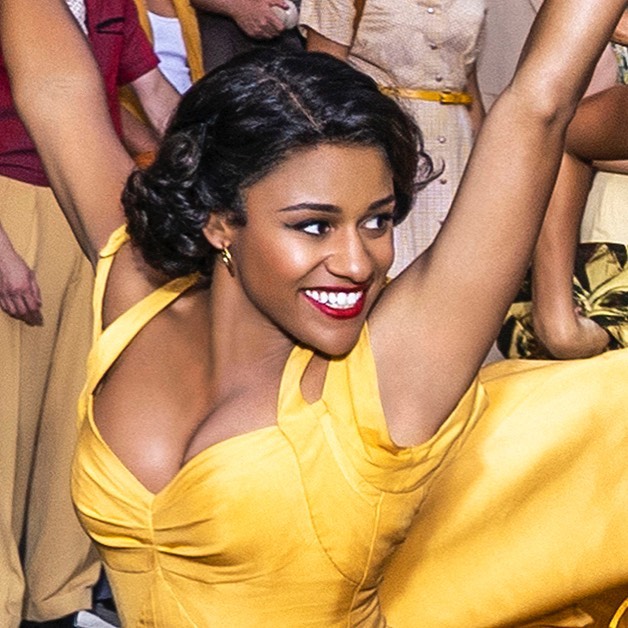
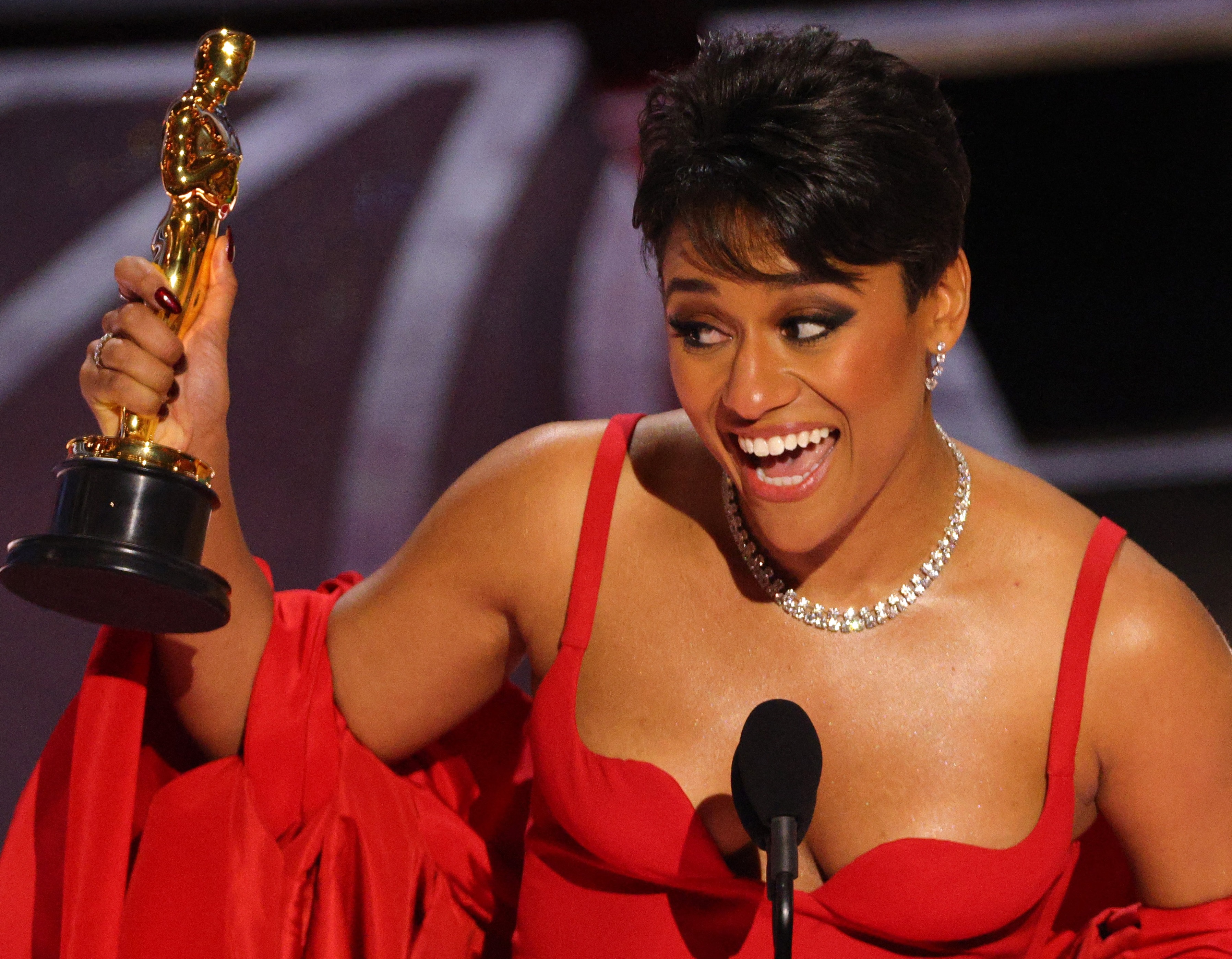
DeBose won the prize for her role in the
Steven Spielberg-directed West Side
Story remake, in which she plays the key
role of Anita, the girlfriend of Sharks
gang leader Bernardo, and sings the
famous number America. It makes DeBose
only the second Latina actor to win an
Oscar, after Moreno, and the first queer
woman of color.
To a standing ovation, DeBose celebrated
Moreno as a trailblazer: “I’m so
grateful – your Anita paved the way for
tons of Anitas like me, and I love you,”
she said, gesturing to Moreno. “Now you
see why Anita says ‘I want to be in
America’, because even in this weary
world that we live in, dreams do come
true, and that’s a really heartening
thing right now,” DeBose said.
DeBose has already won a string of
awards for her role in the film,
including best supporting actress at the
Baftas, Golden Globes and Screen Actors
Guild awards.
Ariana DeBose: First Openly Queer Woman
of Color to Win Acting Oscar
West Side Story Cast Performs "America"
From "West Side Story"
Ariana DeBose Becomes First Openly Queer
Woman of Color to Win Acting Oscar
Oscars 2022: Ariana DeBose Wins Best
Supporting Actress for 'West Side Story'
Ariana DeBose Accepts the Oscar for
Supporting Actress
Oscars 2022: Winners Recap 94th Academy
Awards
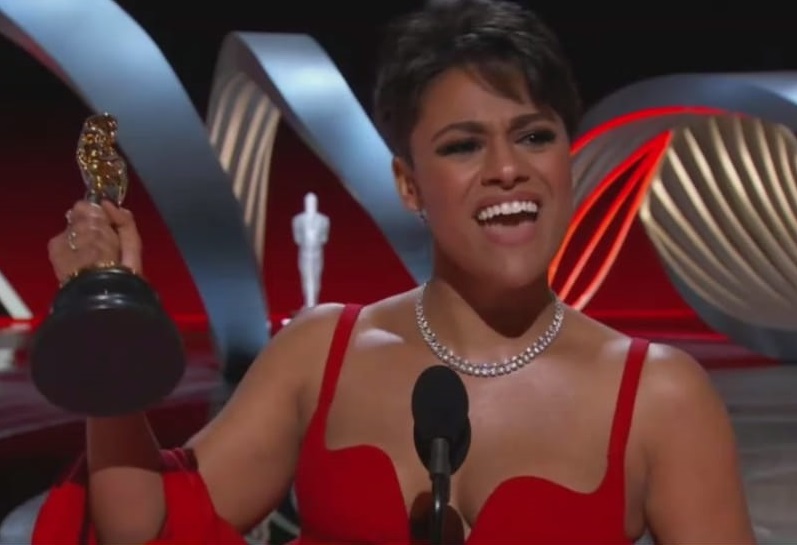
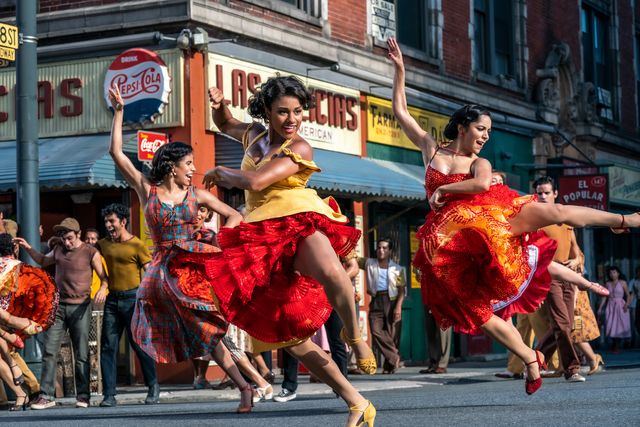
At the end of her speech, the
31-year-old actor harkened to her early
days as an aspiring performer. “Imagine
this little girl in the back seat of a
white Ford Focus, look into her eyes,”
she said. “You see an openly queer woman
of color, an Afro-Latina, who found her
strength in life through art. And that
is, I think, what we’re here to
celebrate.” To anyone who “has ever
questioned your identity” or “lived in
the grey spaces”, she added, “there is,
indeed, a place for us.'
Trailblazing Queer Icons
from Puerto Rico
Emilia Schneider Becomes First Trans Woman Elected
Deputy in the History of Chile
Robert Garcia becomes First Out LGBTQ Immigrant Elected
to Congress
Miss Argentina and Miss Puerto Rico Reveal That They're
Married
NBC: Same-Sex Marriage is Now Legal in All of Mexico's
States
José López Duvont: First Puerto Rican to Win Mr. Gay
World
Cuba Legalizes Same-Sex Marriage in Historic Referendum
SNL: Ariana DeBose and Kate McKinnon
First Latina SAG Film Actress Winner: Ariana DeBose



LGBTQ Spanish
Phrases
Gay Y
Lesbiana - Gay and Lesbian
Transgénero - Transgender
Se Tu
Mismo - Be Yourself
Feliz Dia
Do Orgulho - Happy Pride Day
Igualdad En El Matrimonio - Marriage Equality
Normalmente Se Dice Salí Del Closet O Soy Gay - Coming
Out of the Closet
Todos Por
El Amor Y Amor Para Todos - All For Love and Love For
All
Nunca Es Tarde Para Ser
Quien Eres - It's Never Too Late to Be Who
You Are
Marcia/Maricon
- Offensive Term for Gay
Inclusive
Descriptors
Latino -
Traditional term referring to men
Latina - Traditional term referring to women
Latinx - Progressive gender-neutral term
Latine - Progressive gender-neutral term
Before Bad Bunny: Other Trailblazing
Queer Icons From Puerto Rico
Salma Hayek Talks Trans Acceptance in Her
New Holiday Film 'El Sabor de la Navidad'
Guatemala Presidential Frontrunner to
Keep Same-Sex Marriage Illegal and Run Country with Fear
of God
Latinx Shows Full of Awesome LGBTQ
Characters
Doritos Mexico: Valentine’s Day Ad
Celebrating Love and Tragic Truth About LGBTQ
Relationships
Gay Congressman Robert Garcia: Swearing His Oath
LGBTQ Latinx Celebrities Celebrating Hispanic Heritage
Month
Gay Playwright Matthew López: First
Latino to Win Tony Award for Best Play
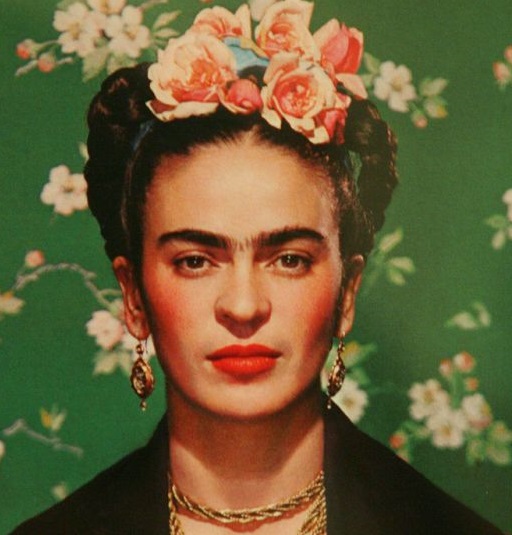
Frida Kahlo: LGBTQ Mexican
Artist
Frida Kahlo (1907-1954), born Magdalena
Carmen Frida Kahlo y Calderón, is a
bisexual artist and political activist.
She is arguably Mexico’s most famous
artist. Inspired by the country's
popular culture, she employed a naïve
folk art style to explore questions of
identity, postcolonialism, gender,
class, and race in Mexican society.
Her paintings often had strong
autobiographical elements and mixed
realism with fantasy. In addition to
belonging to the post-revolutionary
Mexicayotl movement, which sought to
define a Mexican identity outside of
European colonialism, Kahlo has been
described as a surrealist or magical
realist.
Her clothing choices also reflected her
determination to define a Mexican
identity. She incorporated traditional
clothing into her wardrobe as a way to
show pride in her Mexican heritage. Much
of what she wore carried both personal
and political meaning to Kahlo.



Frida Kahlo: Biographical
Notes
Frida Kahlo: Famous
LGBTQ Mexican Artist
Frida Kahlo and Her Paintings
Although she was disabled by polio as a
child, Kahlo had been a promising
student headed for medical school until
a traffic accident at age eighteen,
which caused her lifelong pain and
medical problems. During her recovery,
she returned to her childhood hobby of
art with the idea of becoming an artist.
she was mostly self-taught.
Kahlo's interests in politics and art
led to her joining the Mexican Communist
Party in 1927, through which she met
fellow Mexican artist Diego Rivera. The
couple married in 1928 and spent the
late 1920s and early 1930s traveling in
Mexico and the United States. Rivera was
by far the better-known artist, but
Kahlo did secure her first solo
exhibition in New York in 1938.
Kahlo's work as an artist remained
relatively unknown until the late 1970s,
when her work was rediscovered by art
historians and political activists. By
the early 1990s, she had become not only
a recognized figure in art history but
also regarded as an icon for Chicanos,
the feminism movement, and the LGBTQ
movement.
She had a tumultuous relationship with
her husband, Diego Rivera. Both had a
number of affairs — some sanctioned and
some on the sly. They even divorced for
a year and then remarried. Her lovers
included a diverse selection of men and
women, many of them well-known thinkers
and artists in their time. Over the
years, she had affairs with Leon
Trotsky, Josephine Baker, Chavela
Vargas, Georgia O'Keeffe, and Isamu
Noguchi.
Video: Latinos Talk About Coming Out
Hispanic Heritage: Queer Latinx Icons
Ricky Martin: Super Happy
About Decision to Come Out
Same Sex Marriage Now Legal in Costa Rica
Pulse: Short Film
Video Talk: Queer Mexican Couple
Trailblazing Queer Icons from Puerto Rico
Brown and Out: LGBTQ Latinx Play Festival
LGBTQ Latinx: We Carry Pride Within Ourselves
First Mexican Film to Feature a Gay
Couple: Sensual Bittersweet Dramedy From 1985
Top Concerns for Gay Latino Youth
Cuba Votes to Legalize Same-Sex Marriage

LGBTQ
Latinx
Celebrities
|
Ariana
DeBose - Actor, Singer
Dan Bucatinsky - Actor
Bamby Salcedo - Activist
Patricia Velasquez - Actor, Model
Ricky Martin - Musician
Mathew Rodriguez - Journalist
Emily Rios - Actor
Ian Matos - Olympic Diver
Julio Salgado - Artist
Aubrey Plaza - Actor, Comedian
Matthew López - Film Director
Vicci Martinez - Musician
Shane Ortega - Soldier
Rosario Dawson - Actor
Axis Mundo - Artist
Michelle Garcia - Editor
Carlos Padilla - Activist
Harvey Guillén - Actor
Richard Blanco - Poet
Frida Kahlo - Artist
Bad Bunny - Singer, Rapper
Gabby Rivera - Writer
Daniela Vega - Singer, Actor
Pedro Julio Serrano - Activist
Tatiana Hazel - Musician
Nesthy Petecio - Olympic Boxer
Manny Mua - Fashion Guru
Emily Estefan - Singer
Guillermo Diaz - Actor
Sara Ramirez - Actor
MJ Rodriguez - Actor
Robert Garcia - Politician
Harvey Guillén - Actor
Wendy Guevara - Entertainer
 |
Demi
Lovato - Musician
Indya
Moore - Actor
Natalie Morales - Actor
Matthew
Lopez - Playwright
Sylvia
Rivera - Stonewall Activist
José López Duvont - Mr Gay World Winner
Zander
Keig - Social Worker
Claudia
Lopez - Politician
Isa Noyola
- Activist
Patricia
Yurena - Beauty Queen
Rose
Troche - Filmmaker
Mario Jose
- Singer
Orlando
Cruz - Boxer
Yosimar
Reyes - Poet
Michelle
Rodriguez - Actor
Carmen
Carrera - Fashion Model
Linda
Perry - Musician
Jakk Fynn
- Pop Artist
Laura
Aguilar - Photographer
Perez
Hilton - Journalist
Jennicet
Gutierrez - Activist
Wilson
Cruz - Actor
Mondo
Guerra - Fashion Designer
Christian
Chavez - Musician
Zoe
Saldana - Actor
Janiecet
Gutierrez - Activist
Ritchie
Torres - Politician
Gio Benitez - TV Host
(GMA)
Tessa
Thompson - Actor
Stephanie
Beatriz - Actor
Polo Morin - Actor
Mariana Varela - Beauty Queen
Fabiola Valentín - Beauty Queen
Daniela
Arroyo Gonzalez - Puerto Rico Miss Universe
 |

We Love These LGBTQ Latine Celebs
Latinx Icons Inspiring LGBTQ Youth
Queer Latinx Trailblazers
Orgullo LGBTQ: Querido Yo, Todo Mejoro
LGBTQ Latinx Stories
Famous LGBTQ Latinx
Reel: Mexico City Pride
Celebrating
Latinx Queer Icons
Saray y Risos: I Don't Forget You Yet
LGBTQ Pride Parades in Latin America
HRC: Resources for the LGBTQ Latinx Community
LGBTQ Latinx Heroes
Celebrities Adored by the Queer Latinx Community
Latinos in Love
Video Talk: Queer Mexican Couple
Pulse: Short Film
Mi Amor Mi Vida
Video: Coming Out to Immigrant Parents
Wilson Cruz:
Actor and Activist
Wilson
Cruz (born Wilson Echevarría in 1973) is
a American actor and, as an openly gay
person of Puerto Rican ancestry. He has
served as an advocate for gay youth,
especially gay youth of color.
Cruz was
born in Brooklyn, New York, to parents
of Puerto Rican descent. His family
eventually moved to Rialto, California,
where he attended Eisenhower High
School, graduating in 1991. At age 19
Cruz came out to his parents as gay,
first to his mother and then his father.
While his mother was initially hurt and
shocked, she eventually accepted the
news. His father, however, threw him out
of the house, and Cruz spent the next
few months living in his car and at the
homes of friends. He later reconciled
with his father.
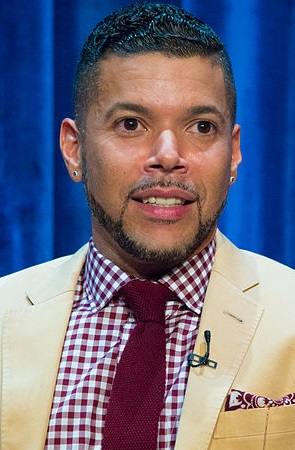


Wilson Cruz: Biographical Notes
IMDB: Wilson Cruz
Wilson Cruz: Gay Actor and Activist
Cruz went to Hollywood to seek work as
an actor, intending to be open about his
sexuality from the beginning of his
career. In 1994 he was cast as Enrique
"Rickie" Vasquez, a troubled gay teen,
in the short-lived critically acclaimed
cult classic TV series ‘My So-Called
Life’. This made Cruz the first actor to
play an openly gay character in a
leading role in a television series.
Cruz went on to play J. Edgar Hoover's
servant Joaquin in Oliver Stone's film
‘Nixon’ and had a small role in the
television movie ‘On Seventh Avenue’. In
1996 he appeared with David Arquette as
Mikey in ‘Johns’ about the day-to-day
struggles of male prostitutes.
In 1998, he portrayed Angel in the
Broadway production of ‘Rent' and in
2000 played Victor in the final season
of ‘Party of Five’. He also had a
recurring role as Rafael de la Cruz on
the series ‘Raising the Bar’. Cruz's
other acting credits include roles in
eight feature films, and guest
appearances on seven television series
including a featured role in ‘The Red
Band Society’.
Cruz joined the board of directors of
GLAAD in 1997 in order to assist the
organization through a leadership
transition, and was the Grand Marshal of
the 1998 West Hollywood Gay Pride parade
and the 2005 Chicago Pride Parade.
In 2008, he was the keynote speaker at
the University of Illinois at Chicago's
Lavender Graduation and Rainbow Banquet
honoring graduating LGBTQ students, and
joined the staff of GLAAD in 2012 as a
National Spokesperson and Strategic
Giving Officer.
Equaldex: LGBTQ Rights in Mexico
Stephanie and Caro:
Bachata Dancing in Buenos Aires Argentina
Fidel and Alejandro: Wedding Ceremony
Guía de Recursos Para Salir del Clóset
Muxe: Third
Gender in Southern Mexico
Fidel and Alejandro: Wedding Ceremony
Transgender Latina Activists
Luisita and Amelia: Secret Love Song
Mi Amor Mi Vida
Video Report: Mexico's Third Gender
Propuesta de Matrimonio: Yanet and Magda
Latinx People Living With HIV Share How They
Came to Terms With Their Diagnosis
Te Amo
Saray
y Risos: I Don't Forget You Yet
Queer Salsa
LGBTQ Rights in Latin America
Same Sex Marriage Now Legal in Costa Rica
Costa Rica becomes the
latest country to legalize same-sex marriage as a ruling
from its supreme court goes into effect ending the
country’s ban. Couples scheduled ceremonies (mostly
private due to the COVID-19 pandemic, but some that
would be broadcast) to celebrate their unions before
judges and notaries after the ban was lifted. Costa Rica
becomes the sixth country in Latin America to legalize
same-sex marriage, following most recently Ecuador,
which allowed it last year. It is also permitted in some
parts of Mexico.
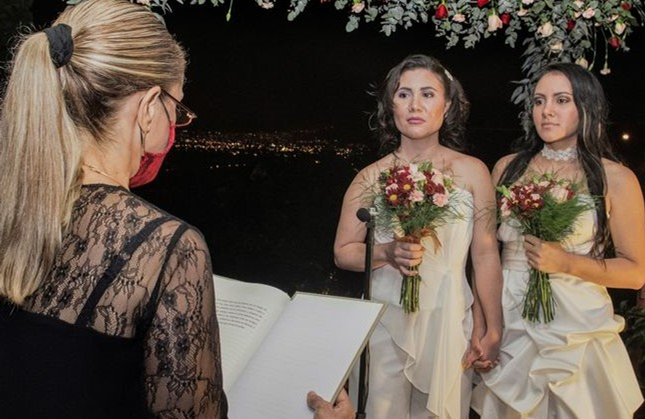
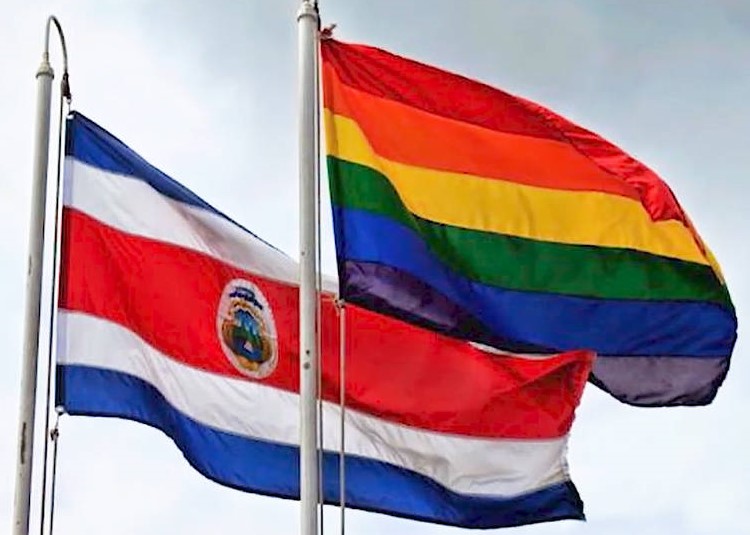
The issue took center stage in Costa Rica’s 2018
presidential election after the Inter-American Court of
Human Rights earlier that year issued an opinion that
countries like Costa Rica, which had signed the American
Convention on Human Rights, had to move immediately to
legalize gay marriage. It helped propel President Carlos
Alvarado to victory over an evangelical candidate,
Fabricio Alvarado, who had campaigned against it.
A campaign celebrating the achievement called “I do”
planned a series of events including hours of coverage
on state television and messages from celebrities,
including Michelle Bachelet, the United Nations High
Commissioner for Human Rights. Gia Miranda, director of
the “I do” campaign, said, "It gives us so much joy."
She said it would help decrease discrimination and make
the country more prosperous and attractive to tourists.
Argentina,
Brazil, Colombia, Ecuador, and Uruguay have already
implemented marriage equality. Mexico allows same-sex
marriages in 18 of 33 states its capital.
[Source: Javier Cordoba, HuffPost, May 2020]
LGBTQ Pride Parades in Latin America
Juliantina: Speechless
LGBTQ Latinx Celebrities Celebrating Hispanic Heritage
Month
Que Es Ser Gay En Mexico?
Trailblazing Queer Icons from Puerto Rico
Religion and Coming Out Issues for Latinas and Latinos
Sí Acepto: First Lesbian Couple to Get Married in Costa
Rica
Frida Kahlo: Famous Mexican Artist
LGBTQ Latinx: We Carry Pride Within Ourselves
Propuesta de Matrimonio: Yanet and Magda
Under the Skin: Short Spanish Language Trans Film
Costa Rica: First Central American
Country to Legalize Same Sex Marriage
Latinos in Love
Out and Proud: LGBTQ Latinx Celebrities
Video Talk: Queer Mexican Couple





Coming Out as
LGBTQ and Latinx
"There are
so many significant experiences in my culture that have
something to do with a person's life as a heterosexual,"
said Sandra Telep, a Mexican-American activist in
Washington, DC. "Last night at work, my two best
friends were arguing over which one would be the padrino,
or godfather, at my wedding. Although I've come out to much of my family, I haven't
come out to them yet," said Telep. "I really wonder if
they would still want to be my padrino if they knew I
would be committing to a life together with another
woman."
Although Latinx Americans come from various cultural
backgrounds, many who come out as gay, lesbian,
bisexual, transgender or queer share similar experiences
and challenges. Some, who were raised Roman Catholic,
must reconcile themselves with the church's teachings
that acting on one's homosexuality is sinful. Language
differences often make finding resources and support
difficult, and a lack of LGBTQ Latinxs in media and
entertainment perpetuates invisibility.
Fortunately, however, anecdotal evidence suggests that a
growing number of Latinxs are coming out.
As challenging as being a gay, lesbian, bisexual,
transgender or queer Latinx may be, it can also be
extremely fulfilling. Linda Villarosa, lesbian author
and journalist, found the secrecy and silence too
taxing. "I came out because I couldn't stand not being
myself anymore," she said.
Many LGBTQ people report that after they come out, they
are able to communicate better with their family and
friends. Coming out at home, at work, in churches and
schools will also further the visibility of LGBTQ people
and help ensure that those who are still in the closet
know they are not alone.
[Source: Human Rights Campaign]

Reel: Mexico City Pride
Guía de Recursos Para Salir del Clóset
HRC: Resources for the LGBTQ Latinx Community
Queer Salsa
Our Families: LGBTQ Latinx
Stories
Doritos and Dia de Muertos: Nunca Es Tarde Para Ser
Quien Eres
Same Sex Marriage Now Legal in Costa Rica
Video Talk: Queer Mexican Couple
LGBTQ Latinx: We Carry Pride Within Ourselves
Mi Amor Mi Vida
Orgullo LGBTQ: Querido Yo, Todo Mejoro
HRC: Latinx LGBTQ Youth Report
After
Orlando: What Do Queer Latinx People Deserve?
Support for
LGBTQ Latinx Youth
Supportive
parents, school administrators, teachers, counselors and
other youth-serving professionals play an essential role
in the lives of LGBTQ Latinx youth. Their support is
especially important as LGBTQ Latinx youth can struggle
in the absence of affirmation from their families and
communities regarding their sexual orientation or gender
identity. However, LGBTQ Latinx youth continue to be
their own powerful forces of change. According to
research conducted on the issues of LGBTQ Latinx youth,
their stories of empowerment, resilience, activism and
advocacy are pronounced. Across the country, they are
advocating for inclusivity and equality. They need us to
do the same. It is critical to support LGBTQ
Latinx youth in their pursuit of LGBTQ
equality and racial justice. It’s time that we
acknowledge the intersectional nature of the LGBTQ
Latinx experience and begin creating spaces that are
safe, affirming and welcoming for all.



Out and Proud: LGBTQ Latinx Celebrities
LGBTQ Latinx Heroes
Religion and Coming Out Issues for Latinas and Latinos
HRC: Resources for the LGBTQ Latinx Community
Orgullo LGBTQ: Querido Yo, Todo Mejoro
Mi Amor Mi Vida
HIV Rates in the Latinx
Community: Why So High?
What's the Diff: Latino,
Hispanic, Latinx
Video Talk: Latinx Trans Woman
Te
Amo
--31% have
received verbal threats because of their sexual
orientation, gender identity or gender expression.
--Over 3 in 5 were teased at school about their
race/ethnicity.
--Only 15% have heard positive messages about being
LGBTQ in school.
--Only 28%
always feel safe in the classroom.
LGBTQ youth whose families are supportive and accepting
are more likely to experience positive health outcomes
across several dimensions including: greater self-esteem
and resilience; a lowered risk of depression, distress
and feelings of hopelessness; and a reduced risk of
substance use. However, many LGBTQ youth report that
sharing their sexual orientation or gender identity with
their family is incredibly stressful. Latinx youth
surveyed say that their real and perceived fears of
rejection are compounded by negative comments they hear
about the LGBTQ community from parents and family
members. It is important for LGBTQ advocates
(counselors, teachers, social workers) to provide
life-changing support to LGBTQ Latinx youth who may not
receive it from their parents or family members. Where
possible, these advocates may also be able to play a
role in educating families in the Latinx community.


Brenda Besó a su Entrenadora
Doritos and Dia de Muertos: Nunca Es Tarde Para Ser
Quien Eres
Video Talk: Queer Mexican Couple
Calle y Poche: La Correcta
Our Families: LGBTQ Latinx
Stories
IGLTA: Plan Your Trip to Central America and the
Caribbean
LGBTQ Latinx: We Carry Pride Within Ourselves
--72% of
LGBTQ Latinx youth surveyed have heard family members
say negative things about LGBTQ people.
--Only 1 in 5 have had family get involved in the larger
LGBTQ community.
--28% of gay, lesbian, and bisexual youth have been
taunted or mocked by family.
--45% of transgender youth have been taunted or mocked
by family.
LGBTQ Latinx youth face significant challenges accessing
affirming, supportive counseling services or mental
health support. LGBTQ Latinx youth are also wary of
opening up. Only six percent of respondents said they
would be very comfortable discussing a question about
their LGBTQ identity with a counselor. This may be
because their counselors do not seem open to discussing
LGBTQ topics. However, several respondents wrote in that
they would be more willing to talk about their
identities if they knew their counselors were
supportive. Access to mental health service providers
that are culturally competent and LGBTQ-affirming is
essential to the well-being of these youth. Many
learning opportunities, from web-based learning modules
to large-scale
conferences, are available to professional counselors
and therapists who work with LGBTQ youth and wish to
improve their skills, knowledge and competence in
working with young people who have intersecting LGBTQ
and Latinx identities.
[Source:
Human Rights Campaign]





Juliantina: Sexual Tension
Que Es Ser Gay En Mexico?
Amelia and Luisita
LGBTQ Latinx Celebrities Celebrating Hispanic Heritage
Month
CNN: Being LGBTQ in Latin America
Frida Kahlo: Famous Mexican Artist
Gay Playwright Matthew López: First
Latino to Win Tony Award for Best Play
HRC: Latinx LGBTQ Youth Report
Latinos in
Love
LGBTQ Travelers
to Central America
Central
America can be an unwelcoming place for gay men and
lesbians, but there are some bright spots. Same-sex
marriage was legalized in Mexico in 2009 and in Costa
Rica in 2013. The current president of Costa Rica, Luis
Guillermo Solís, has been unusually vocal in his support
for gay rights, and even flew the rainbow flag at the
presidential house.
Advocacy groups in other Central American countries are
eager to follow suit. Consensual gay sex has been
decriminalized all around the region, with the exception
of Belize. Gay and lesbian travelers can actually be
barred from entering Belize, though we are not aware of
any such incidents.
That said, official and unofficial harassment is
possible anywhere in Central America. In general, public
displays of affection will not be tolerated and gay men
(and possibly women) could find themselves the target of
verbal or physical abuse. Discretion is definitely the
rule in Central America, especially in the countryside.
Lesbians are generally less maligned than gay men so
women traveling together should encounter few, if any,
problems.



CNN: Being LGBTQ in Latin America
New Cuban President Backs Marriage Equality
LGBTQ Rights in Latin America
IGLTA: Plan Your Trip to Central America and the
Caribbean
Equaldex:
LGBTQ Rights in Mexico
LGBTQ Venues in
Latin America
There is usually at least one gay bar in big cities,
which makes meeting people easier. Some of the more
public gay and lesbian scenes:
Costa Rica - There is a thriving gay scene in San José
and in Manuel Antonio.
El Salvador - The charming mountain town of San Vicente
is a popular gay destination.
Guatemala - Travelers will find a small and subdued gay
scene in both Antigua and Guatemala City.
Mexico - The biggest and best gay scene in the region is
at the bars and clubs in Cancún and Playa del Carmen.
Nicaragua - Travelers will find a few gay-specific bars
in Managua.
Panama - Bars come and go, but the gay scene in Panama
City is surprisingly limited. The normally discreet
population is more open during Carnaval festivities,
which usually feature a gay float in the parade.

Queer Art World: Latinx and Chicanx
Changing the Music Industry: Queer Latinx Musicians
LATV Launches First LGBTQ Latinx Talk Show
Making a Difference: Queer Latinx Musicians
Calle y Poche: La Correcta
Famous LGBTQ Latinx: Changing the World
Glitterbomb: New LGBTQ
Latinx TV Talk Show

HOME
QUEER CAFE
│ LGBTQ Information Network │ Established 2017 |